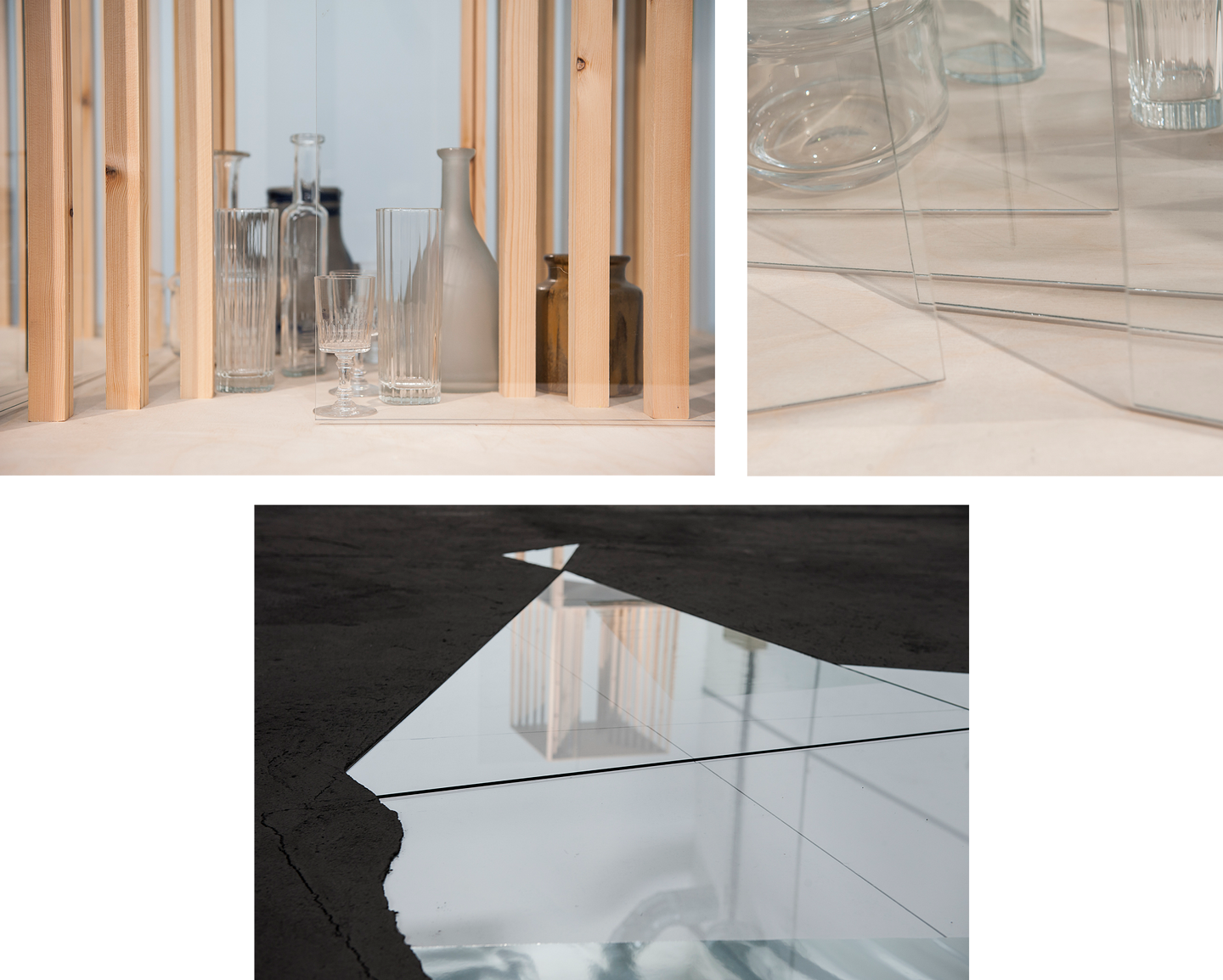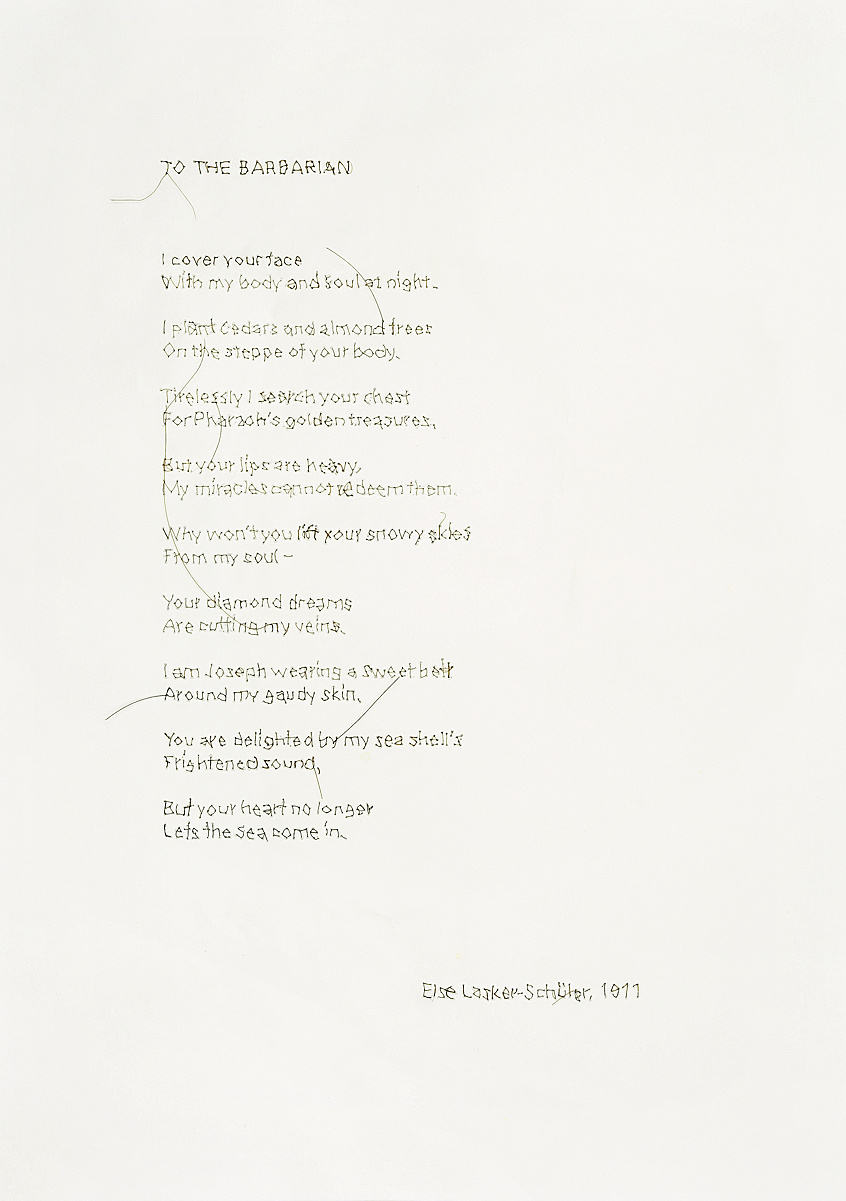You handed me a face shield with a steel blue head strap. “Have a glass mask,” you said. We laughed softly, aware of the obvious, not funny, allusion. I asked you if you knew that monosyllabic rhymes like “gas” and “glass” are categorically masculine? A two-syllable “further murder” is contractually feminine. “Ah,” you said, “like ‘brokebone gravestone.’” How did gendering come to matter in the linguistics of assonance anyway? Why trouble a double? Sex a sound?
Tapping at the lightly tinted, fabulously fractured surface that now covered your face, I thought I heard you say something about these defenseless holes of ours. Mouth-holes, ear-holes, nostrils, eye sockets. All require protection from the triggers and echoes of waveforms and particulate matter. What were we really defending with our shields?
Faux facial armor in place, we took long deep breaths, expanding our lungs, thinking somehow that breathing itself was the ironic point of the encounter. You noticed my audible intake and suggested I try reverse breathing, expanding the abdomen on the exhale rather than contracting it. Misting the masks of broken glass with hot breath, we considered this quality respiration. Your work, after all, has always provoked mass with transparency. Allowed the body its entropic vulnerability.
A cool speedy blue refracts from your cheek. An orangish spark reflects from your chin. I notice your wince. You tell me you see a jade green sword, tipped in venomous gold, sparkle from the vertical crease in my forehead. Like Iulia’s smashed skull. The light rips a phantom.
Facial muscles are so nuanced. The merest micro-movement gives an indication of feeling. The tiniest twitch tells tales. For a moment, you say, you see Cornelia’s despair in the shadow of a mouth corner. Feel Else’s breath captured in her toothless dying.
Glass masks. What beauty do we catch now as the light glints and blinds through the fragile clarity of these strange visors? We breathe in and out as the anguished do, and hope, you and I, that the spectral array we see bouncing before us portends something we can care about.
Coda: Yael Davids, born in 1968, considers the intersection of personal and political narratives, the collection, and collective heritage, and examines the body as a site of convergences and conflicts. In her assemblage for documenta 14, she brings together different characters, such as painter Cornelia Gurlitt, poet and playwright Else Lasker-Schüler, Roman empress Iulia Aquilia Severa, and Rahel Varnhagen who was known for her significant salons, with a new sculptural work made by the armor-glass factory in Kibbutz Tzuba where she grew up.
—Sher Doruff




